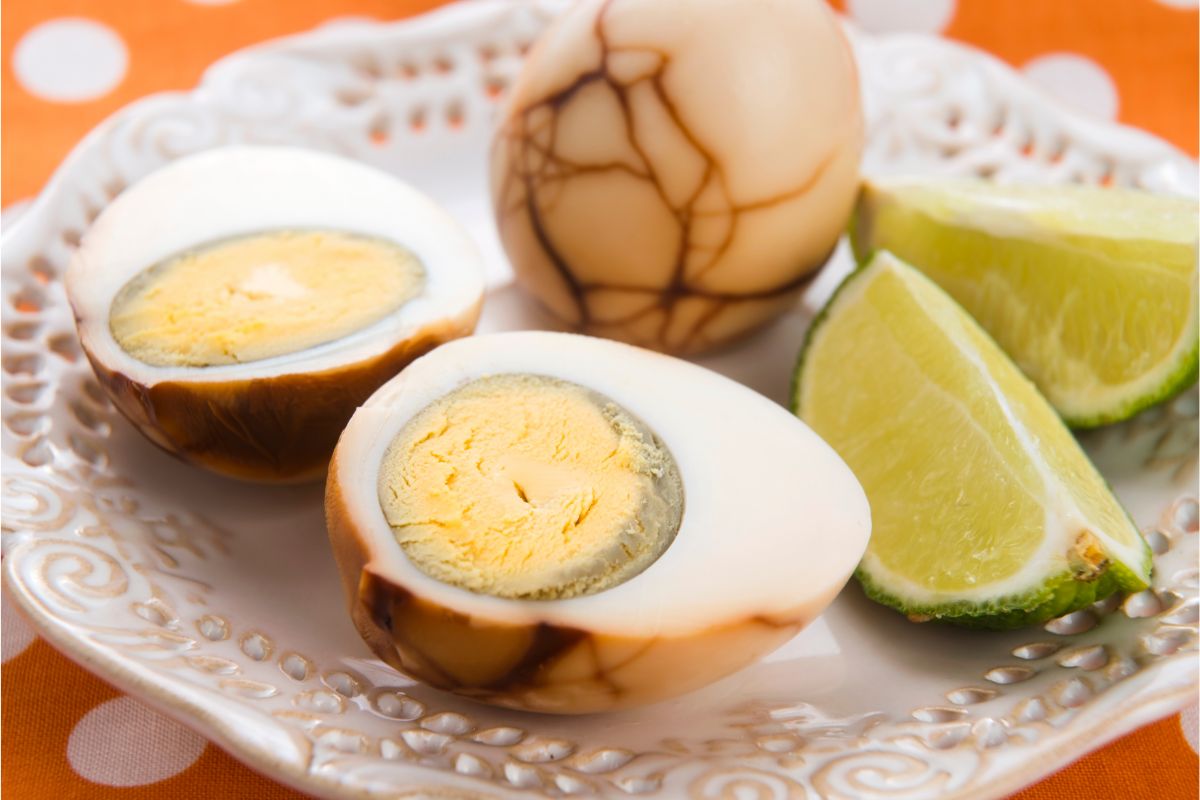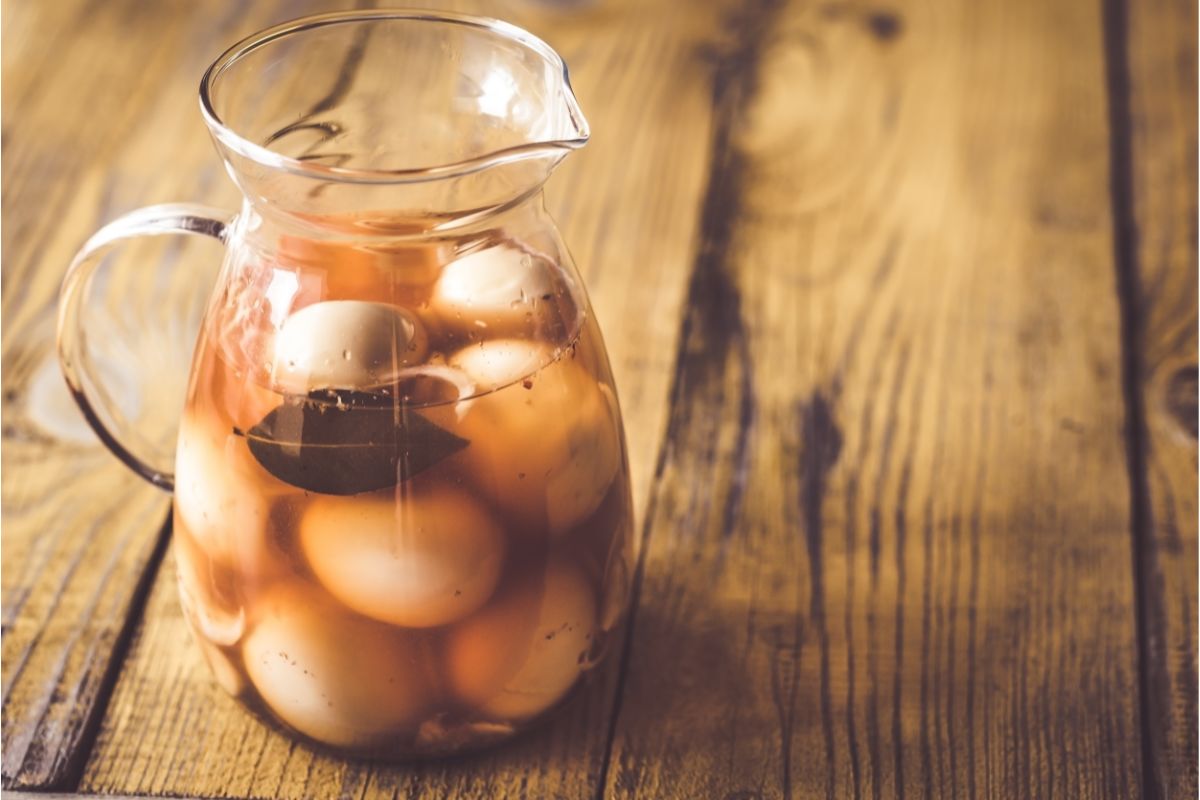If you have pickled eggs, you may be wondering if this type of pickled food needs refrigeration. This is a common question because many people don’t know how to store different types of pickled foods.
There are also many opinions when it comes to storing pickled food, so it is difficult to know exactly what to do. Because there is a lot of conflict about what people think is safe and what is not.
With food of any kind, preservation and safety are very important. You want to make sure that what you eat is safe and not contaminated in any way.
Especially when it comes to pickled food that should have a long shelf life. Read on to find out if pickled eggs need refrigeration or if they have a shelf life.
Pickled eggs should be refrigerated
If you love eating pickled eggs, you might be wondering if this type of pickled food needs refrigeration. Unfortunately, most pickled eggs need to be refrigerated to keep them safe for long-term consumption.
This is mainly because most pickled eggs are homemade and not sold in most stores. And homemade pickles should be stored in the fridge, as they may not keep as well as other options.

When it comes to pickled foods, things can get pretty tricky as there are many opinions that often conflict with each other. For this reason, there are most likely different opinions when it comes to storing pickled eggs.
Many people firmly believe that pickled eggs do not need to be refrigerated and are perfectly safe and durable. While others believe that pickled eggs should definitely be refrigerated to keep them safe and fresh.
As such, it can be difficult to come up with a clear answer that says exactly what you do and don’t do. However, the most widely held belief seems to be that pickled eggs need to be refrigerated to remain safe for consumption over the long term.
Here are some reasons why you should keep your pickled eggs in the fridge until you’ve eaten them all:
Eggs spoil easily
One reason you should keep your pickled eggs in the fridge is that eggs spoil extremely easily. This is a type of food that is known to spoil quickly, which then leads to very gross results.
You can also get very sick if you eat a spoiled egg, which is part of the fear. This is a food that you will definitely not want to eat again if it is spoiled or you suspect it is spoiled.

Even preserved eggs can spoil for a variety of reasons, depending on the environment. That’s why refrigerating your pickled eggs is an easy way to prevent this and keep them safe for longer.
bacterial growth
Although pickled food is pickled, any type of pickled food has a higher risk of being contaminated by harmful bacteria. This can be due to various reasons, one of which being storage in a warm environment, which leads to the formation of bacteria inside the container.
Bacteria can also get into the pickled eggs if you reach into the container with your hands or a utensil to grab eggs. Bacteria are everywhere and could easily get into the container and start growing with the pickled eggs.
Refrigeration helps with this as bacteria cannot safely grow in a very cold environment. At least not the kind of bacteria that can prove dangerous if they grow in your food.
Are Homemade Pickled Eggs Safe?
Most people who like pickled eggs tend to prepare them at home. This is because pickled eggs are not widely available and can be difficult to get your hands on depending on where you live.
While home-made pickled eggs are not as safe as store-bought eggs, they are still completely safe to eat. As long as you use the correct procedure for pickling your eggs, you shouldn’t have any problems.
The homemade pickled eggs should always be kept in the refrigerator to keep them fresh. You should also be very careful not to get bacteria in the container that could grow there and contaminate the eggs.
Unchilled pickled eggs can be kept for up to 2 hours
For most people, pickled eggs are not considered perishable food, they can be kept unrefrigerated for a while. You can safely leave pickled eggs at room temperature for up to two hours without anything bad happening.

However, it is important that they are not left in a hot environment where bad bacteria are sure to develop. Leaving them at room temperature for up to two hours doesn’t really hurt as long as you put them back in the fridge.
You should also make sure that no pickled eggs rise above the brine in the glass. All pickled food must be under the pickle solution to remain safe and fresh.
If exposed to air, bacteria could develop inside and begin to spoil, contaminating the entire jar of pickled eggs. That’s why you should always check your pickled eggs to make sure none of them have risen to the surface and been exposed to air.
Some pickled eggs are durable
Many types of store-bought eggs are considered durable because they are made by reputable brands. With store-bought eggs, the pickled eggs are usually sealed using very high-tech methods, ensuring they are not exposed to contamination.
Therefore, depending on the brand you buy them from, you may be able to store store-bought pickled eggs at room temperature. As well as how warm it is in your home as cucumbers should not be left out and temperatures are over 75°.
Most store-bought pickled eggs are made with higher standards in mind as they must meet certain safety requirements. Because of this, the saline solution is probably very strong and a better preservative than homemade brain.
This helps these types of pickled eggs last longer and last longer without any safety concerns. However, you still need to double-check the label to make sure it has instructions printed on it.
Final Thoughts
If you enjoy treating yourself to homemade pickles, you may want to know if they need refrigeration. Most people agree that pickled eggs should be refrigerated to prevent long-term spoilage.
However, you can safely leave pickled eggs at room temperature for up to two hours. Some store-bought pickled eggs may also be safer and will remain safe even when stored outside of the refrigerator.
Most people agree that homemade pickles should be refrigerated as they may not meet the safety requirements needed for a full shelf life.
